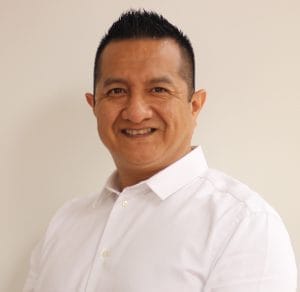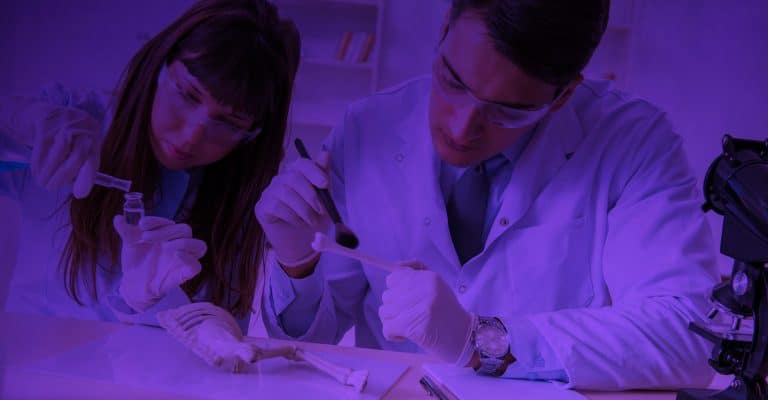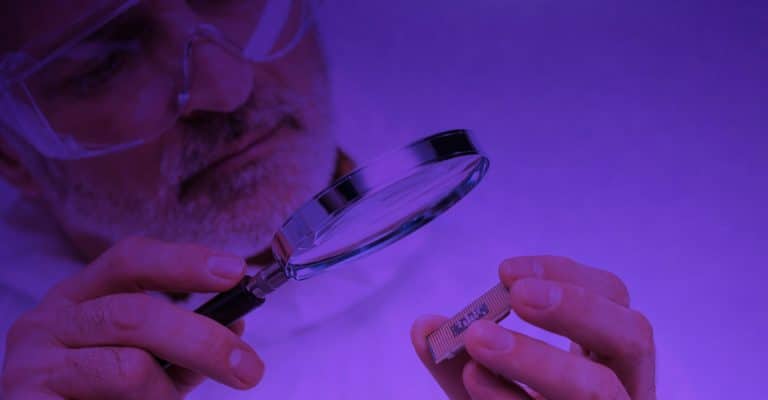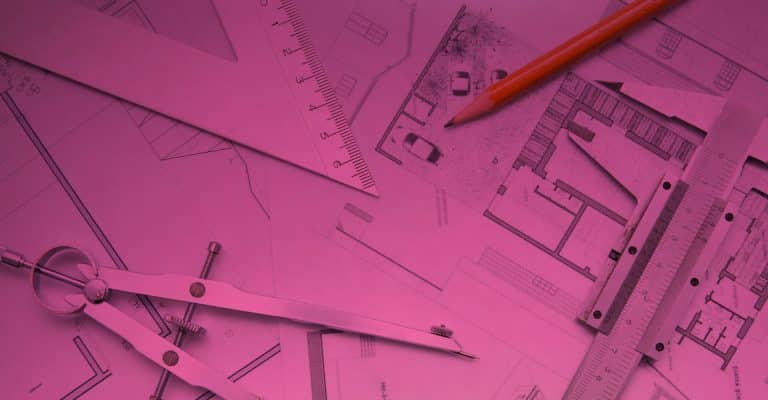Doctor of Electrical Engineering (D.Sc, PhD)
School of Science and Engineering
Academic Freedom to Discover Your Purpose
Open Curriculum Design at Atlantic International University
Are you ready to dive deep into the world of Electrical Engineering, push the boundaries of innovation, and embark on a journey that can reshape the future? A Doctorate in Electrical Engineering is not just a degree; it’s a gateway to endless possibilities and a ticket to be at the forefront of technological advancement. Hence, with a Doctorate in Electrical Engineering, you can become a pioneer in developing cutting-edge technologies, from renewable energy systems to advanced communication networks. Whether you’re interested in academia, research, or industry, a Ph.D. in Electrical Engineering opens doors to high-impact roles and lucrative career opportunities.
Once you’ve earned your Ph.D. in Electrical Engineering, the sky’s the limit. You can become a university professor, join a leading tech company, or even start your own venture. Your expertise will be in demand, and you’ll have the chance to make a significant impact on the world.
So, are you ready to power up your career and be a driving force behind technological progress? In fact, this is your ticket to an exciting, impactful, and intellectually fulfilling future. Start your journey today!
Courses and Topics in Doctorate in Electrical Engineering
A Doctorate in Electrical Engineering typically involves a combination of advanced coursework and independent research. In a Doctorate in Electrical Engineering, students typically explore advanced topics such as Electromagnetics, Signal Processing, Analog and Digital Circuits, Control Systems, Power Systems, and Communication Systems.
Specialized courses vary by research focus, covering areas like Nanoelectronics, Wireless Communication, Renewable Energy, VLSI Design, and Machine Learning. The program also includes seminars, interdisciplinary courses, and professional development to prepare students for research and leadership roles, culminating in a significant dissertation project.
AIU’s Doctorate in Electrical Engineering offers advanced courses like Electromagnetic Theory, Digital Systems Design, Renewable Energy Technologies, Robotics and Automation, and Advanced Control Systems. Students engage in extensive research, publish academic papers, and collaborate with faculty mentors. The program includes comprehensive exams and a substantial dissertation project. AIU’s emphasis on hands-on experience and cutting-edge technology ensures graduates are well-prepared for impactful careers in academia and industry.
Control Engineering
Power Systems
Communications
Signal Processing
Solid-state Electronics
Applied Eletromagnetics
Artificial intelligence
Antennas
Electrophysics
Applied Superconductivity
Microwaves
Microwave Amplifiers
Microwave Solid-State Devices
Optical Spectroscopy
Human Control and Decision Making
Fuzzy Logic
Power Systems Optimization
Fiber Optics
Semiconductor Materials Growth
Characterization and Device Fabrication
Mathematical Physics
Quantum Field Theory and Magnetism
Telecommunications

Orientation Course
Orientation courses for a Doctorate in Electrical Engineering provide essential groundwork for doctoral students. These typically encompass research methodologies, academic writing, and ethics. Students gain insights into departmental and university policies and resources, meet faculty members, and build connections with peers. These courses help students acclimate to the academic environment, ensuring they are well-prepared to embark on their research journey, meet program requirements, and make the most of their doctoral experience.
Furthermore, orientation courses serve to familiarize students with the academic rigor and research methodologies they will encounter, alleviating apprehensions and enhancing their readiness. In essence, these courses play a pivotal role in guaranteeing that doctoral candidates commence their program with self-assurance, concentration, and a profound grasp of the road ahead, laying the foundation for a prosperous journey in educational leadership.
- Communication & Investigation (Comprehensive Resume)
- Organization Theory (Portfolio)
- Experiential Learning (Autobiography)
- Academic Evaluation (Questionnaire)
- Fundament of Knowledge (Integration Chart)
- Fundamental Principles I (Philosophy of Education)
- Professional Evaluation (Self Evaluation Matrix)
- Development of Graduate Study (Guarantee of an Academic Degree)
Research Projects in Doctorate in Electrical Engineering
Doctorate in Electrical Engineering research projects encompass diverse areas, such as Power Systems and Renewable Energy (improving smart grids and renewable integration), Electronics and VLSI Design (creating advanced integrated circuits), Signal Processing and Communications (enhancing data transmission and wireless tech), Control Systems and Robotics (advancing automation), Photonics and Optoelectronics (applications in optical communication), Machine Learning and AI (solving EE problems), Nanotechnology (nano-material applications), Electromagnetics (antennas and electromagnetic compatibility), Cybersecurity in Electrical Systems (protecting infrastructure), and Biomedical Engineering (developing medical devices). These projects demand extensive research, publications, and collaboration with the aim of advancing technology, making graduates adept in academia and industry.
Research projects in a Doctorate in Electrical Engineering offer several advantages. They foster innovation, deepen technical expertise, and contribute to the field’s advancement. These projects develop critical thinking, problem-solving, and collaboration skills. They also provide opportunities for networking, publishing research, and potential industry partnerships, enhancing career prospects and positioning graduates as experts in cutting-edge technology and problem-solving.
- Doctoral Dissertation Project
- MBM900 Doctoral Proposal
- MBM902 Doctoral Dissertation (15,000 words)
Publication – Additionally, these endeavors empower graduates with capabilities that transcend their academic pursuits, unlocking diverse career pathways in educational leadership, research, policy formulation, and various other fields. Hence, for individuals embarking on a Doctorate in Electrical Engineering, research projects serve as the guiding force, directing them toward a future that promises enhanced educational equity and advancement.
Empower yourself with a Doctorate in Electrical Engineering from AIU, and become a part of innovation and global impact.
Transformative Doctorate Student Journey at AIU
The pursuit of a Doctorate in Electrical Engineering at AIU is a transformative journey filled with intellectual growth, challenges, and innovation. As students set foot on this path, they step into a world where possibilities are endless, and the impact they can make is profound.
The journey begins with orientation courses, helping students acclimate to the academic rigors, research methodologies, and ethical standards. Here, our students meet esteemed faculty members, passionate peers, and learn about the abundant resources at their disposal. This initial phase prepares them for what lies ahead and fosters a sense of community, vital for the arduous yet rewarding road ahead.
AIU’s Doctorate in Electrical Engineering program delves deep into core subjects such as Electromagnetics, Digital Systems Design, Renewable Energy Technologies, and Advanced Control Systems. These courses not only build a strong foundation but also enable students to explore specialized electives tailored to their research interests. This phase is crucial as it equips students with the knowledge and skills necessary to embark on their research journey.
The heart of the program lies in research projects. Here, students have the opportunity to push the boundaries of knowledge in their chosen area of Electrical Engineering. Whether it’s optimizing power systems, developing cutting-edge VLSI designs, or advancing communication technologies, their work has the potential to revolutionize the field. Collaborating with faculty mentors, students learn to ask profound questions, design rigorous experiments, and contribute valuable insights to academia and industry.
As part of AIU’s commitment to fostering global leaders, students are encouraged to share their research findings at international conferences and publish in renowned academic journals. This global exposure not only enriches their academic experiences but also broadens their perspectives and encourages them to address global challenges through their work.
AIU recognizes that a Doctorate in Electrical Engineering extends beyond academic research. It prepares students for leadership roles in industry, academia, and policy development. Through professional development courses, teaching practicums, and mentorship, graduates gain the skills necessary to excel in diverse career opportunities.
Community & Social
AIU’s online program has fostered a vibrant and interlinked community with great care. We utilize state-of-the-art technologies and collaborative resources to ensure that your educational experience is anything but isolated. Our Virtual Campus, Mobile App, and various platforms like MYAIU, AIULink, and AIUTV act as digital conduits, establishing connections among students, alumni, and faculty members spanning the globe.
The Doctorate in Electrical Engineering at AIU isn’t just an academic pursuit; it’s a transformative journey. It’s an expedition through knowledge, innovation, and leadership that equips students to forge a brighter, more equitable future, not only for themselves but for the world of education and beyond. It’s a journey that leads to a future where ideas become reality, and challenges are met with solutions.
Contact Us Today!
We understand how busy adults do not have time to go back to school. Now, it’s possible to earn your degree in the comfort of your own home and still have time for yourself and your family. The Admissions office is here to help you, for additional information or to see if you qualify for admissions please contact us. If you are ready to apply please submit your Online Application and paste your resume and any additional comments/questions in the area provided.
Pioneer Plaza
900 Fort Street Mall 905
Honolulu, HI 96813
800-993-0066 (Toll Free in US)
808-924-9567 (Internationally)
808-947-2488 (Fax)
Academic Resources
The AIU Virtual Campus stands as a hub of innovation, boasting an impressive arsenal of over 25 meticulously designed tools that empower students on their academic and personal journey. In our unwavering commitment to cutting-edge technology, our groundbreaking Virtual Reality 3D immersive experience fosters a thriving sense of community, significantly amplifying student growth, motivation, and inspiration.
At the heart of our academic offerings, a treasure trove of resources is readily available. This includes an online library housing an extensive collection of more than 260,000 books and a staggering 30 million peer-reviewed articles, journals, and publications. This invaluable reservoir is complemented by a vast database of over 105,000 academic resources, thoughtfully curated by the thriving AIU community.
For those embarking on a Doctorate in Electrical Engineering or any related doctoral program, these resources serve as a crucial launchpad for your growth and success. Tailored to a wide spectrum of academic interests, each resource is painstakingly customized to address the unique needs and aspirations of our students, ensuring they possess the essential tools to transform their aspirations into tangible accomplishments and achieve their program objectives.
Virtual Campus
Complete assignments online or offline at your convenience with 24/7 access to distance learning through AIU’s Virtual Campus. Step by Step guides including videos, tutorials, live webinars and examples for each course. All materials can be access on all web browsers as well as via AIU's Mobile App which brings all the features of the Virtual Camus to your Mobile Device.
My AIU Elements
MyAIU’s primary goal is to go beyond Academics, it looks to guide students through 11 elements that are key to living life optimally in all aspects. By identifying and reflecting on these key areas, an opportunity arises to holistically address them, through positive change, habits, reinforcement and tools to keep students on their chosen path.
AIU TV & Radio
The students have the opportunity to produce, edit and host their own show reaching a worldwide audience, the AIU community and giving notice of their expertise/passion in the subject. AIUTV & AIU Radio allow students to explore new ways to communicate, develop a platform and form potential collaboration with likeminded individuals.
AIU Campus Mundi
AIU Campus Mundi is a monthly magazine that gathers the most notable news and information about the university and its members in one convenient place. The magazine allows our community to be well informed, involved and keep in tough regardless of their geographic location. AIU Campus Mundi publishes, news, research, events, awards, academic achievements.
Graduation Ceremony
Each year AIU organizes graduation ceremonies where the students can assist and share their experiences with fellow students and academic members Participation in the ceremony is optional, the day’s events include conferences, research presentations, group meetings, networking, lunch and formal dinner.
Symposiums & Webinars
AIU’s Doctorate in Electrical Engineering program transcends the traditional academic route, acting as a gateway to a vibrant community of scholars and professionals. Our symposiums stand as strongholds of knowledge and innovation, providing a forum for doctoral candidates to unite, showcase their pioneering research, and partake in stimulating conversations that push the boundaries of our comprehension.
Live Classes
AIU’s Doctorate in Electrical Engineering program redefines the landscape of online education. We take pride in offering live, interactive classes that infuse vitality into the virtual classroom, curating a completely immersive and vibrant learning environment for our students. These live sessions, skillfully guided by our seasoned faculty and industry experts, serve as an invaluable platform for real-time discussions, extensive Q&A opportunities, and collaborative problem-solving ventures.
Engaging in these live classes not only solidifies your understanding of intricate strategic leadership concepts but also nurtures substantial connections with your fellow students, fostering a robust sense of community and camaraderie. Enrolling in AIU’s live classes unlocks the door to participating in intellectually stimulating conversations, staying abreast of the latest trends and innovations in the field of electrical engineering, and receiving timely, personalized feedback from your instructors.
This groundbreaking approach to online learning ensures that your academic voyage in the Doctorate in Electrical Engineering, whether pursuing a Ph.D. in Electrical Engineering or a similar degree, transcends mere education, becoming profoundly enriching and tailored to your individual needs and aspirations.
Special Projects
At AIU, our Doctorate in Electrical Engineering program features exclusive projects meticulously crafted to offer students practical, experiential learning that harmoniously supplements the rigorous academic curriculum. These projects are pivotal in our dedication to cultivating a comprehensive approach to leadership development, guaranteeing that our students can adeptly employ theoretical knowledge in real-life scenarios.
In our Doctor of Electrical Engineering program, these unique projects frequently entail cooperative ventures with industry professionals and prominent thought leaders. This grants our students access to a precious reservoir of wisdom and keeps them abreast of the most recent developments and optimal methodologies in the realm of leadership. Our special projects encompass areas such as Software Engineering, Computer Networks: Technology and Application, Advanced Operating Systems, Advanced Computer Architecture, and Artificial Intelligence.
A Doctorate in Electrical Engineering from AIU is a doorway to opportunities; don’t miss it!
Career Center
The Career Center presents an enticing and fulfilling avenue, unveiling a plethora of prospects across diverse industries and domains. A Doctorate in Electrical Engineering at AIU equips students with advanced expertise, research skills, and leadership capabilities, preparing them for impactful roles in academia, industry, and policy development. Through rigorous coursework, research projects, and global exposure, graduates become innovators who drive technological advancements and address complex challenges in the field.
For individuals seeking an online educational setting, the center offers the flexibility of pursuing higher education without the limitations of a traditional classroom. These programs are carefully tailored to cater to the schedules of working professionals, enabling them to enhance their education while effectively managing work responsibilities and other commitments.
Job Opportunities
The ideal job description for a Doctorate in Electrical Engineering include:
A Doctorate in Electrical Engineering is an advanced academic qualification that opens doors to diverse career opportunities. Graduates with this degree typically have expertise in the field and are equipped to work in various roles.
- Research and Development: Conduct advanced research to create and innovate electrical and electronic systems, devices, and technologies. This may involve designing new circuits, developing algorithms, or exploring novel materials.
- Project Leadership: Lead or contribute to engineering projects, overseeing the design, development, and testing of electrical systems. Ensure projects meet technical requirements and are completed on time and within budget.
- Product Design and Optimization: Design and optimize electrical components or systems, aiming for efficiency, reliability, and performance improvement.
- Technical Consultation: Provide expertise and technical guidance to teams or clients, assisting in problem-solving and decision-making related to electrical engineering issues.
- Quality Assurance: Ensure that electrical systems and products meet quality and safety standards by conducting tests and inspections.
- Innovation: Stay current with emerging technologies and industry trends to propose and implement innovative solutions and improvements.
- Collaboration: Collaborate with interdisciplinary teams, including computer engineers, mechanical engineers, and scientists, to develop integrated systems.
- ]Teaching and Mentoring: In academia, you may teach and mentor undergraduate or graduate students, sharing your knowledge and expertise.
Employment Opportunities after completing Doctorate in Electrical Engineering
- Academia: Many Ph.D. graduates choose to become university professors, conducting research, teaching courses, and mentoring students in electrical engineering and related fields.
- Research and Development: Work in research and development roles within technology companies, government agencies, or research institutions, focusing on innovation and advancing technology.
- Electronics and Semiconductor Industry: Opportunities exist in designing, developing, and optimizing electronic components, microchips, and semiconductor devices.
- Telecommunications: Work on the design and improvement of communication systems, including wireless technologies, fiber optics, and satellite communication.
- Power and Energy Sector: Contribute to the development of sustainable energy solutions, power generation, and grid optimization in roles related to electrical power systems.
- Control Systems and Automation: Design and optimize control systems for industries such as manufacturing, robotics, and automation.
- Computer Hardware and Software: Collaborate on the development of advanced computer hardware, or apply expertise in software and algorithms for various applications.
- Renewable Energy: Work on cutting-edge technologies related to solar, wind, and other renewable energy sources.
- Aerospace and Defense: Apply electrical engineering knowledge to design and improve systems used in aircraft, spacecraft, and defense technologies.
- Consulting: Provide specialized expertise as a consultant to various organizations, helping them solve complex electrical engineering problems.
- Government and Regulatory Bodies: Work for government agencies or regulatory bodies as an expert in electrical engineering to help develop and enforce standards and regulations.
- Healthcare and Biomedical Engineering: Contribute to the design of medical devices, imaging technologies, and healthcare systems, focusing on improving patient care.
- Start-ups and Entrepreneurship: Pursue entrepreneurial ventures by applying electrical engineering knowledge to develop new products, services, or technologies.
- Environmental and Sustainability Sector: Contribute to sustainability efforts by working on projects related to environmental monitoring, renewable energy, and green technologies.
- Information Technology: Work in roles related to data centers, cloud computing, cybersecurity, and information technology infrastructure.
- Robotics and Automation: Apply expertise in designing and developing robotic systems for manufacturing, healthcare, and various other industries.
- Consulting and Policy Development: Offer consultation to organizations or work in government roles to help shape policies related to electrical engineering and technology.
Tools used in Electrical Engineering
These software tools serve various purposes in the field of Electrical Engineering, ranging from circuit design and analysis to power systems simulation and automation. Choosing a software depends on the specific tasks and projects an engineer or researcher is working on.
- MATLAB: Widely used for numerical computation, data analysis, and simulation, particularly in signal processing and control systems.
- AutoCAD Electrical: A specialized version of AutoCAD for electrical design, including electrical schematics and control diagrams.
- LabVIEW: National Instruments’ software for data acquisition, instrument control, and industrial automation applications.
- COMSOL Multiphysics: A finite element analysis software for simulating and modeling various physical phenomena in electrical systems.
- ANSYS: A powerful simulation tool used for electromagnetic, structural, and thermal analysis, among other applications.
- ETAP: Electrical power system analysis and design software, essential for power system engineers.
- Dialux: Lighting design software used to plan and visualize lighting installations in buildings.
Associations for Professionals in Electrical Engineering
Several professional associations cater to individuals in the field of Electrical Engineering, offering networking opportunities, resources, and support for career development. These associations offer valuable resources and opportunities for electrical engineering professionals to stay connected, informed, and supported in their careers. Membership in these organizations can provide access to a network of experts, educational materials, and industry updates.
- Institute of Electrical and Electronics Engineers (IEEE): IEEE, world’s largest technical professional organization works towards advancing technology. It provides services such as; conferences, publications, and standards development. IEEE has numerous technical societies and local chapters focused on various aspects of electrical engineering.
- American Society of Electrical Engineers (ASEE): ASEE promotes excellence in engineering and engineering education. It offers resources for educators and researchers, hosts conferences, and supports innovation in electrical engineering education.
- Association for Computing Machinery (ACM): While not exclusively for electrical engineers, ACM is the world’s largest computing society. It offers valuable resources, publications, and conferences for those working in electrical and computer engineering.
- The Institution of Engineering and Technology (IET): IET is a leading professional society for electrical, electronic, and information technologies. It provides access to knowledge, resources, and networking opportunities for professionals in the electrical engineering field.
- Electrical and Computer Engineering Department Heads Association (ECEDHA): ECEDHA is an association of electrical and computer engineering department heads and chairs in North America. It offers a platform for sharing best practices, discussing challenges, and promoting educational excellence in the field.
- Association of Energy Engineers (AEE): AEE focuses on energy management, efficiency, and sustainability. It offers certifications, conferences, and resources for professionals working on electrical systems and energy-related projects.
- Power Electronics Society (PELS): PELS is a technical society within IEEE dedicated to advancing power electronics. It provides access to journals, conferences, and networking opportunities in this specialized field.
- National Society of Professional Engineers (NSPE): While not specific to electrical engineering, NSPE serves licensed professional engineers in various fields. It provides resources for professional development, ethics, and advocacy.
Complete your Doctorate in Electrical Engineering from AIU for a future filled with advancement, technology, and innovation.
Requirements for Doctorate in Electrical Engineering
Pursuing a Doctorate in Electrical Engineering is a challenging and rewarding endeavor. Candidates typically need a Bachelor’s or Master’s degree in Electrical Engineering or a related field. Admission requirements often include strong academic records, GRE scores, letters of recommendation, a statement of purpose, and, in some cases, relevant research experience. Additionally, some programs may require qualifying exams or interviews. Specific prerequisites and criteria can vary by institution, so it’s essential to check with the university offering the program.
How Can You Apply?
The steps to apply for a Doctorate in Electrical Engineering are mentioned below:
Research Programs: Explore the program to align with your goals and interests.
Check Requirements: Review the specific admission requirements of the program you’re interested in.
Prepare Application Materials: Gather required documents, including transcripts, letters of recommendation, a SOP, and standardized test scores.
Write a Statement of Purpose: Craft a compelling essay explaining your goals, experience, and reasons for pursuing a doctorate in electrical engineering.
Secure Letters of Recommendation: Request strong letters of recommendation who can attest to your qualifications.
Take Standardized Tests: If required, take tests like the GRE and meet the minimum score requirements.
Complete the Application Form: Fill out the application form provided by the institution and pay the application fee.
Submit Transcripts: Provide official transcripts from all colleges and universities you have attended.
Interview: Few programs require an interview, to discuss your qualifications and goals.
Financial Aid: Explore financial aid options, such as scholarships, grants, or assistantships, and submit any necessary applications.
Application Deadline: Ensure your application is submitted by the program’s application deadline.
Follow Up: Monitor your application status and promptly respond to any requests for additional information.
Acceptance: Once admitted, respond to the offer and complete any additional enrollment requirements.
Financial Support & Scholarships
We are excited to introduce a variety of scholarships tailored for our doctoral candidates. We invite you to share your information, granting you access to a diverse range of scholarships carefully designed to support your academic and intellectual pursuits. Let us be a part of helping you achieve your educational dreams.
How Much Does a Doctorate in Electrical Engineering Cost Per Year?
Commence your academic journey at AIU, where we offer the Doctorate in Electrical Engineering Andragogic Online Program
FAQs
Q. Can you get a PhD in electrical engineering?
Ans: Yes, you can earn a Ph.D. in Electrical Engineering. A Ph.D. in Electrical Engineering is an academic degree that signifies the highest level of expertise in the field. This program typically involves advanced coursework, extensive research, the completion of a significant dissertation, and often teaching or academic responsibilities. Earning a Ph.D. in Electrical Engineering can open up opportunities in academia, research, industry, and various leadership roles within the field.
Q. Can you earn your PhD in electrical engineering online?
Ans: Yes, it is possible to earn a Ph.D. in Electrical Engineering online from accredited universities and institutions. Online Ph.D. programs in Electrical Engineering are designed to provide flexibility for working professionals or individuals who cannot attend traditional on-campus programs. These online programs often include virtual lectures, research projects, and dissertation work that can be completed remotely. However, it’s crucial to ensure that the online program is accredited and meets your specific academic and research needs. Always verify the program’s legitimacy and quality before enrolling.
Q. Should I get a master’s degree or PhD in electrical engineering?
Ans: A master’s degree is typically sufficient for most industry roles, while a Ph.D. is essential for academia, research, and leadership positions. Consider your aspirations and the level of specialization you desire before deciding.
Q. How many years is a doctorate in electrical engineering?
Ans: A Doctorate in Electrical Engineering typically takes around 4 to 6 years to complete. The duration may vary based on factors such as research complexity, program structure, and individual progress. It involves coursework, research, and the completion of a substantial dissertation.
Contact Us
Atlantic International University
900 Fort Street Mall 905 Honolulu, HI 96813
Quick Links
Home | Spanish | Online Courses | Available Courses | Vrtual Campus | Career Center | Available Positions | Ask Career Coach | The Job Interview | Resume Writing | Accreditation | Areas of Study | Bachelor Degree Programs | Masters Degree Programs | Doctoral Degree Programs | Course & Curriculum | Human Rights | Online Library | Representations | Student Publication | Sponsors | General Information | Mission & Vision | School of Business and Economics | School of Science and Engineering | School of Social an Human Studies | Media Center | Admission Requirements | Apply Online | Tuition | Faculty & Staff | Distance Learning Overview | Student Testimonials | Frequently Asked Questions | Register for Program | Privacy Policy | FAQ



























